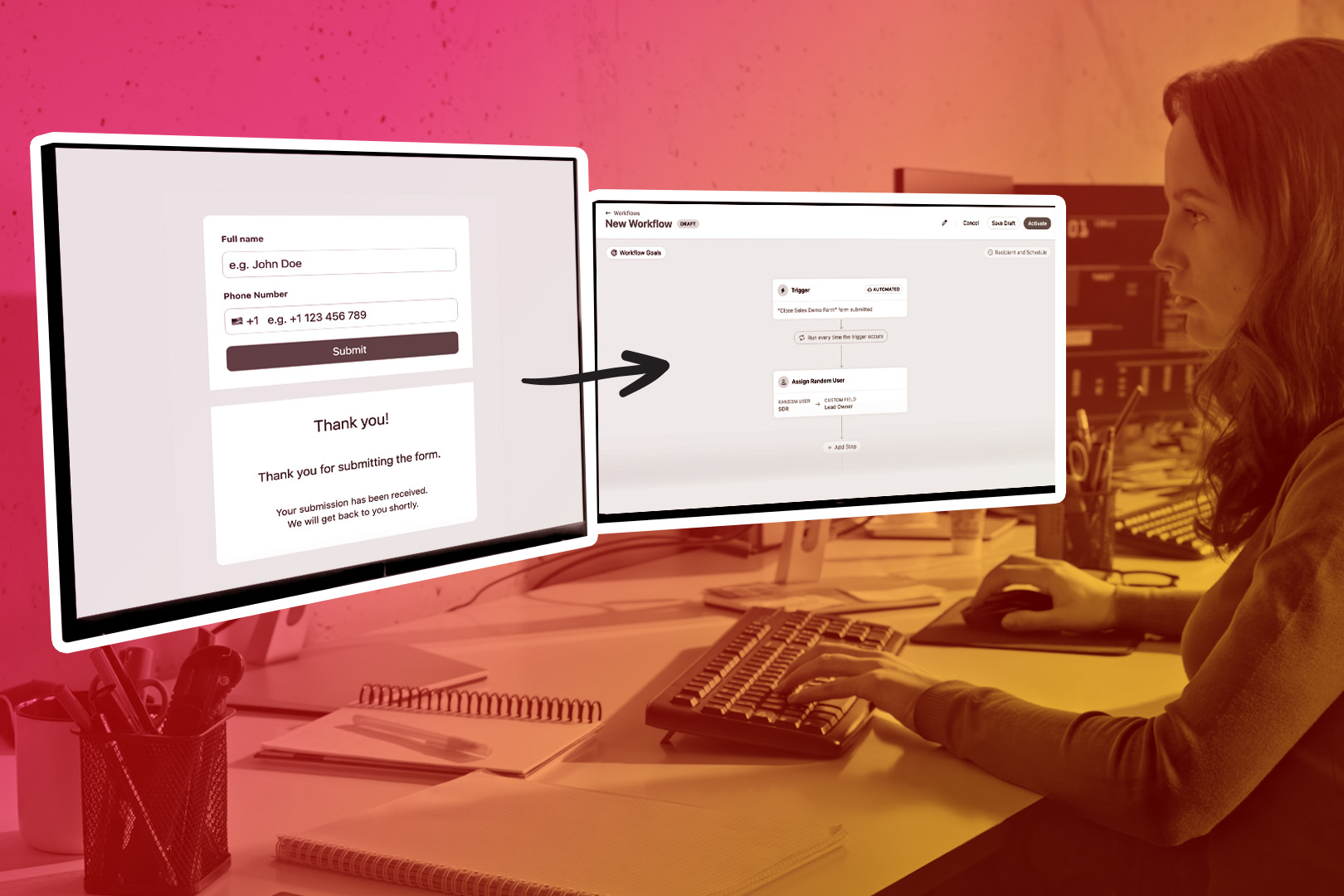How do you deal with prospects and customers that are hurting during these times?
So many companies are facing serious challenges due to the COVID crisis. Deals you thought would be closed this quarter have suddenly gone out the window. Millions of people have been suddenly laid off from their jobs.
Your prospects are suffering.
So, what should you do with prospects like these? Is it time to forget about them and move on?
Simple answer: No.
I’m going to share a piece of advice I received years ago that can be applied to all salespeople today. Then, I’ll show you how to reach out in a way that boosts your reputation and can even help your career.
How David Weekly’s advice to me from years ago applies today
When I first moved from Europe to Silicon Valley, I went to a TEDx event and met David Weekly. He was a successful entrepreneur already, running an education startup at the time. We talked about building a successful startup, he gave me this valuable piece of advice:

“One thing that’s special about Silicon Valley is that we treat our interns exceptionally well. You should treat your interns exceptionally well because one day you might have to work for them.”
This is a powerful idea that is somewhat unique to Silicon Valley: Those who seem powerless today may be the next industry titans. So, you better be nice to everyone.
That advice always resonated with me and has proven very true over the years. Almost every intern that’s worked for me has become an important, successful entrepreneur. These people that used to work for me are suddenly in a position to help me.
Here’s how this advice applies now:
It’s bad times like this when you can create a reputation that can last a lifetime, and impressions that last an entire career. Also, people that are down right now might be up again in the near future.
So you better be nice to everyone.
Treat your career like a business by forming long-term relationships
In sales, you interact with people on what is mainly a transactional level: you reach out to people to start a relationship, then you nurture that relationship to convert it into business and money.
This (unfortunately) implies a short-term focus: start the relationship today with the short-term goal of turning them into a customer.
This short-term focus isn’t good, but it’s gotten even worse with this crisis.

With so much uncertainty in the world, and so much extra pressure and stress on salespeople, it’s become easier to think even more short-term.
This leads to more cold, transactional interactions. The common thought process is this: “Can this person give me money now? If not, they’re worthless to me.”
This is a very dangerous way of thinking for two reasons:
- From a societal point of view, this attitude can cause real harm to other people
- From a business point of view, thinking only in the short-term is very bad business practice.
No, I’m not talking about the business you work for. I’m talking about the business of YOU.
Most salespeople don’t think of themselves as a business that will need to be maintained for the next 30 to 40 years. They don’t think of prospects as relationships that need to be nurtured over decades, and that will pay dividends over decades if nurtured correctly.
But that’s exactly how you should be thinking.
Your sales career is a business, and you need to maintain that business in the long term.
If you treat your prospects as long-term business relationships, you’re going to get more money and long-term benefits. Then, the longer you’re ‘in business’, the more money you’ll be making and the easier it will be to make money.
So, how do you put this into practice right now?
What can you do with prospects who are hurting now?
Suppose you have a very valuable prospect in your pipeline. You’ve been working on this deal for a long time, and it’s almost to a close.
Or, let’s say you have a valuable customer that’s coming up to renewal, which is an opportunity you thought you’d chase.
Then, you read on the news that they just laid off a ton of people.
Now, what do you do?
Here are three things NOT to do:
- Cross them off your pipeline
- Delete their data from your CRM
- Ignore them, thinking there’s no money to be gained from them right now
If you feel that this is a great company with real potential in the long-term, don’t risk ending this relationship.
Instead, do this: Wait a bit for the dust to settle, then reach out.
How to reach out to people whose livelihood has been affected by the COVID-19 crisis
When your prospects and customers start making large cuts, there are two groups that you can reach out to: those who have been laid off and those who are still working at a company that has lost a lot of good people.
Here’s how you can reach out to each of those groups, and why you should do so:
Reaching out to contacts who were laid off
If you had connections with people who were laid off at this company, reach out to them.
Let them know that you heard about the bad news, and give them some encouragement. You might try something like this:
“I heard about what happened at your company, and I’m so sorry to hear you were affected. I hope you and your family are doing okay during this time. From my experience working and collaborating with you, I’ve gained a lot of respect for you. I’m sure that you’re going to go on to even better opportunities, and that you’ll continue to do great work.”
When you lose your job, that’s one of the lowest feelings in the world. At a time when people are feeling down on themselves, getting an email with some words of encouragement from a professional that can’t gain anything from them right now is something they’ll remember.
And this doesn’t have to be just lip service: if you really believe in the person and can do more to help them during this time, offer more!
“I know you’ll be looking for work now. If you apply to a company that I’m connected with, feel free to ping me and I’ll try to make an introduction. Or, if you need a recommendation for your LinkedIn profile, let me know. Anything I can do to help, let me know.”
By doing this, you’re building valuable relationships for the future. True, this relationship won’t get you any money this quarter, but you’d be surprised how quickly things could change. In a few months, they might start their own company, and in a year they could be killing it. Who are they going to remember then?
People might forget your name, your business, your product, your email address, or other details, but people never forget how you made them feel.
That's one of the core principles which underlies my philosophy of the follow-up. It's such a central aspect of the sales process that I've written an entire book just about following up effectively.
Make people feel hopeful, positive, and valued at a time when they’re crushed. They will never forget that.
Reaching out to those still working at a company that’s hurting
You can also reach out to people who are still at the company.
Remember, they’re suffering too. It’s tough to let people go.
There’s no worse day for a CEO than the day they have to lay off a ton of people. It’s heartbreaking.
If you’re connected with the CEO, reach out to them. Say something like this:
“I heard about what happened at your company, and I’m sorry to hear that you’ve had to lay people off. I know that’s the worst feeling in the world. After working together, I’ve gained a lot of respect for your leadership, and I still have a lot of respect for you. I believe in your company, and I’m sure that you’ll get through this rough patch and continue to grow in the future. If there’s anything I can do to help you out, please let me know.”
The important thing here is to show up for these people.
By doing this, you’ll build a good reputation during difficult times, especially with prospects and customers that are hard-hit by this crisis.
Show up for them, and they’ll show up for you
Once you’ve reached out to these people, don’t forget about them. The difficult times are going to stretch on into the future for most of these companies, so keep checking in with them once a quarter to see how things are going.
Circumstances can change quickly, and you never know when you yourself are going to be down and out in the future. At that point, when the situation is reversed, these people are going to show up for you the same way you showed up for them.
So, why not reach out? You could send something like this:
“Last year, I reached out to you to offer sympathy because of the situation you were in. Well, now I’m in the same boat: I just had to lay a bunch of people off. Honestly, it feels a lot worse than I could’ve imagined when I emailed you last year. Now that I understand how hard this must’ve been for you, I hope you’re recovered from this experience. Since you’ve been through this, if you have any valuable advice to pass on, please let me know.”
You could send a similar email if you’re the one who’s been laid off as well. Who knows: Maybe that person responds with a new opportunity or a job offer.
By showing up for people now, you set a better foundation for the business of YOU. This focus on building long-term relationships will help you stabilize your career, even through difficult times.
That said, a certain balance is necessary.
Balance short-term actions with long-term goals
During a crisis, it’s very easy to be more short-term focused. To some degree, we have to act with urgency, but we don’t have to act with desperation.
We still need to act with dignity, especially during these times.
So, be proactive in the way you sell right now. Go after the deals that realistically closable right now. Work hard for the customers that are prosperous and invest in those relationships.
This is the right balance: After all, you can’t feed your family today by building long-term relationships. You have to balance your long-term efforts with some short- and mid-term action.
Just remember: don’t work purely for the short-term payout.
The world will still be around in a year, 10 years, and 20 years from now. So, now is the time to build your best (and possibly your most valuable) business relationships.
By treating your prospects in a way that serves your long-term goals, you’ll see massive benefits into the future.

A strong and effective follow-up strategy is the most underrated secret to sales success. Grab my free book, The Follow-Up Formula, and learn how to move sales conversations to the finish line at lightning speed.








.jpg)



